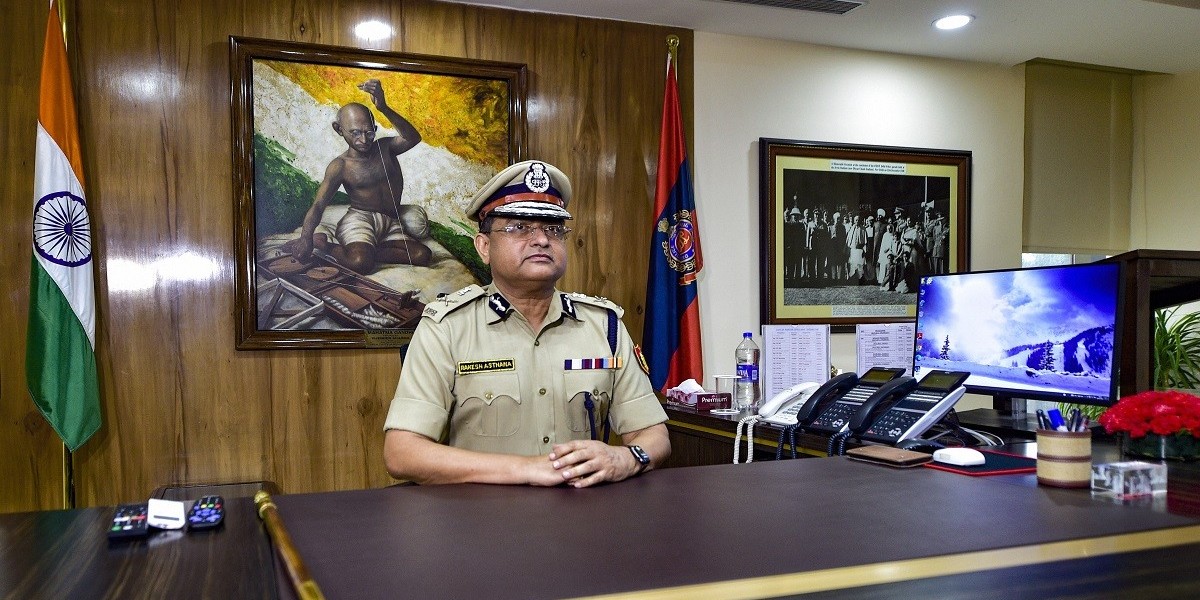If you're passionate about serving the nation and enforcing law and order, then a career in the Indian Police Service (IPS) could be your ultimate goal. Recognized as one of the most prestigious services in India, IPS officers play a crucial role in maintaining internal security, public peace, and administrative order. But how to become IPS officers? What is the qualification, selection process, and career path?
This detailed guide explains everything you need to know about becoming an IPS officer in India—from eligibility and exams to training and job roles.
Who is an IPS Officer?
An IPS officer is a high-ranking civil servant under the Ministry of Home Affairs. They are responsible for:
Leading state and central police forces
Handling law enforcement and public safety
Managing border security forces like BSF, CRPF, etc.
Overseeing traffic, cybercrime, counter-terrorism, and disaster response
IPS officers are respected for their discipline, leadership, and integrity, and they hold significant influence over internal security and public administration.
How to Become IPS Officers in India?
To become an IPS officer, you must clear the Civil Services Examination (CSE) conducted by the Union Public Service Commission (UPSC). Here’s a step-by-step breakdown of the journey:
Step 1: Meet the Eligibility Criteria
Before applying, ensure you meet the following criteria:
Nationality: Must be an Indian citizen
Age Limit: 21 to 32 years (relaxation for reserved categories)
Educational Qualification: A bachelor’s degree from any recognized university
Attempts Allowed:
General: 6
OBC: 9
SC/ST: Unlimited (within age limit)
Step 2: Understand the IPS Selection Process
The UPSC CSE has three main stages:
1. Preliminary Exam (Prelims)
Objective type paper
Two papers: General Studies (GS) and CSAT (qualifying)
Used as a screening test
2. Main Exam (Mains)
Descriptive written exam with 9 papers
Includes essay writing, general studies, and optional subjects
Requires deep conceptual clarity and strong writing skills
3. Personality Test (Interview)
Conducted by the UPSC board
Assesses mental alertness, moral integrity, leadership skills, and overall suitability for civil services
Step 3: Physical and Medical Requirements
To qualify for IPS, you must also meet certain physical standards:
Height:
Men: Minimum 165 cm
Women: Minimum 150 cm
(Relaxation for SC/ST/OBC)
Chest:
Men: Minimum 84 cm (Expansion: 5 cm)
Women: Minimum 79 cm (Expansion: 5 cm)
Vision: Should be within prescribed limits; glasses or contact lenses are allowed in most cases
Medical fitness is evaluated after you are selected in the final merit list.
Step 4: Undergo IPS Training
Once selected for IPS, candidates go through a rigorous training process:
Foundation Course at Lal Bahadur Shastri National Academy of Administration (LBSNAA), Mussoorie
Phase I Training at Sardar Vallabhbhai Patel National Police Academy (SVPNPA), Hyderabad
Includes physical training, law, criminology, Indian Penal Code (IPC), field exercises, weapons training, etc.
District Practical Training follows before returning for Phase II training
This training prepares you for real-world policing, intelligence, and law enforcement duties.
Roles and Responsibilities of an IPS Officer
After completing training, IPS officers are posted in various capacities such as:
Assistant Superintendent of Police (ASP)
Superintendent of Police (SP)
Deputy Inspector General (DIG)
Inspector General (IG)
Director General of Police (DGP)
Their responsibilities include:
Maintaining law and order
Preventing and investigating crimes
Managing police administration
Intelligence collection
Disaster and crisis management
Ensuring VIP security
Supervising elections
Officers may also be deputed to central agencies like CBI, RAW, IB, and NIA.
IPS Officer Salary and Perks
IPS officers are paid as per the 7th Pay Commission. The starting salary ranges from Rs. 56,100 per month, and it can go up to Rs. 2,25,000 based on seniority and rank. Perks include:
Government accommodation
Vehicle and security staff
Travel and dearness allowances
Medical facilities
Pension after retirement
They also receive respect, influence, and opportunities to serve at the highest administrative levels.
Final Thoughts
Becoming an IPS officer is not an easy journey. It requires years of dedicated study, physical fitness, and emotional strength. If you are committed to public service, have a strong sense of justice, and can lead with integrity, this role can be one of the most rewarding careers in India. Start early, prepare strategically, and stay updated with UPSC exam patterns.
Now that you know how to become IPS officers, take the first step today by planning your UPSC preparation and setting a clear timeline.






